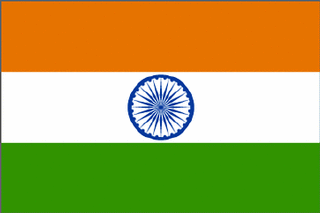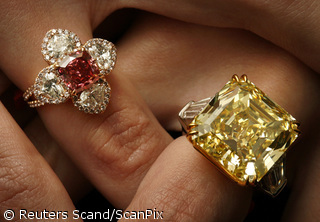European Union supporters in Latvia and Estonia expressed concern Thursday about a new survey pegging their countries as the most EU-skeptical in Europe
Published:
4 August 2003 y., Monday
European Union supporters in Latvia and Estonia expressed concern Thursday about a new survey pegging their countries as the most EU-skeptical in Europe—findings that come just two months before both Baltic states hold referendums on membership. A mere 32 percent of Estonians and 37 percent of Latvians agreed entry would be "a good thing," making them the most pessimistic of those questioned in the EU study released Wednesday. By contrast, 72 percent of Cypriots and 61 percent of Poles said joining would be good for them.
Latvia and Estonia will be the last of 10 EU candidate countries to put the issue of entry to a vote—and observers say there's now a chance that one or both nations could become the first to reject membership in Europe's most powerful multilateral club.
"People are afraid, they don't know what to believe and they're confused," said Pille-Mai Helemae, spokeswoman for the high-profile "Yes to the EU" group in Estonia. "It's going to be a hard fight. But in the end, I'm sure enough people will see more pros than cons to membership." Confusion about the EU was illustrated in the biannual Eurobarometer _ which questioned 1,000 people in each candidate nation in May—with 62 percent of Latvian and 71 percent of Estonian respondents saying they were either poorly informed about the accession process or not informed at all.
The Czech Republic, Hungary, Lithuania, Poland, Slovakia, Slovenia and Malta have already approved EU referendums, most by wide margins. Cyprus is leaving it's decision to lawmakers. If Estonia and Latvia pass their plebiscites on Sept. 14 and Sept. 20 respectively, they would join the EU together with the other candidates in 2004.
Virtually all top leaders in Estonia and Latvia have been pro-EU since the Baltic Sea nations regained independence—arguing that entry will raise their nations international stature, forge vital European trade links and boost living standards.
But official enthusiasm has never been matched outside the halls of power, with many Estonians and Latvians fearing a loss of sovereignty to the EU. Anti-EU groups compare what they say is an overly centralized EU with the U.S.S.R.; one of their symbols is an EU flag stamped with a Communist hammer and sickle.
If the results of the latest survey spooked EU supporters, they delighted opponents. "If you're a EU supporter, I believe the picture is even blacker," said Uno Silberg, who heads Estonia's "No to the EU Movement." "We're confident the referendum will fail."
Šaltinis:
balticsww.com
Copying, publishing, announcing any information from the News.lt portal without written permission of News.lt editorial office is prohibited.
The most popular articles
 At the national war memorial in New Delhi, India's war widows and daughters remember their fallen.
more »
At the national war memorial in New Delhi, India's war widows and daughters remember their fallen.
more »
 By 2020, three out of four people employed in the EU will be working in services like insurance, healthcare, retail and education, according to a new report on the future of the European job market.
more »
By 2020, three out of four people employed in the EU will be working in services like insurance, healthcare, retail and education, according to a new report on the future of the European job market.
more »
 Berlin Zoo's very pleased about the new arrival, as she's the first hippo to be born in Berlin in three years.
more »
Berlin Zoo's very pleased about the new arrival, as she's the first hippo to be born in Berlin in three years.
more »
 MEPs and EU ministers are trying to reach an agreement on how many hours we should work and whether countries should continue to be allowed to opt out of these rules.
more »
MEPs and EU ministers are trying to reach an agreement on how many hours we should work and whether countries should continue to be allowed to opt out of these rules.
more »
 Tanks, guns, socks: the buying of military equipment like this from abroad is complicated due to export rules all being different.
more »
Tanks, guns, socks: the buying of military equipment like this from abroad is complicated due to export rules all being different.
more »
 The life-size replica of the real monument of love has just opened to the public.
more »
The life-size replica of the real monument of love has just opened to the public.
more »
 A series of ice statues symbolizing the dangers of global warming welcomed delegates to the climate change conference taking place in Poznań this week.
more »
A series of ice statues symbolizing the dangers of global warming welcomed delegates to the climate change conference taking place in Poznań this week.
more »
 The diamond is 35.56 carats and dates back to the 17th century.
more »
The diamond is 35.56 carats and dates back to the 17th century.
more »
 Around two million muslims performed the pilgrimage on their haj, which in the past has been tarred by hotel collapses and stampedes.
more »
Around two million muslims performed the pilgrimage on their haj, which in the past has been tarred by hotel collapses and stampedes.
more »
 Yuebin or Happy Guest restaurant became Communist China's first private restaurant.
more »
Yuebin or Happy Guest restaurant became Communist China's first private restaurant.
more »